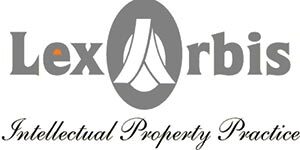India’s Intellectual Property Appellate Board (IPAB) has recently firmly reiterated the well-settled principle that evidence should never be time-barred. In BASF Aktiengesellschaft, a German Company v Microlab Limited and Another, the IPAB intervened in a procedural issue and set aside an order of the Registrar of Trademarks that had abandoned an opposition.

Associate, trademarks team
Lex Orbis
The IPAB
The Intellectual Property Appellate Board was established in September 2003 under the provisions of the Trademarks Act, 1999, to hear appeals against the orders and decisions of the Registrar of Trademarks and Geographical Indication of Goods. The IPAB also has the original jurisdiction to entertain applications for the rectification or cancellation of registered trademarks. Subsequently, with appointment of technical members to the IPAB in April 2007, the jurisdiction of the Board was enlarged to hear appeals arising out of the orders or decisions of the Controller of Patents and also applications seeking the revocation or cancellation of patents.
The IPAB is headquartered in Chennai and comprises a chairman, vice-chairman, technical members for trademarks and patents, and a deputy registrar. The objective of establishing an expert body like the IPAB was to to assure the speedy handling of appeals and rectification applications.
The present case
The brief facts in the BASF case before the IPAB are that Microlab Limited, the first respondent in the appeal, had filed an application in February 2004 for the registration of the mark LUTIVIT in Class 5. The application was advertised in the Trademarks Journal, in January 2005. As per the procedure laid down under the Trademarks Act, once an application for a registration of a trademark is examined and accepted by the Trademarks Registry, the application is advertised in a periodically published Trademarks Journal.
The purpose of such advertisement is to invite opposition from any person whose rights may be adversely affected if the registration of the trademark is granted. The appellant in the appeal, BASF, opposed the registration of the mark on the grounds that it was the prior user and the registered proprietor of the mark LUTAVIT and that the applicant’s mark LUTIVIT would cause confusion in the minds of the general public due to its similarity to the prior-registered trademark.
Upon receipt of the notice of opposition from BASF, the Trademark Registry served the notice on Microlab inviting its counterstatement. Accordingly, in March 2007 BASF received a counterstatement, as filed by Microlab, along with a direction from the Trademarks Registry to file evidence in support of its opposition.
As per rule 50(1) of the Trademark Rules 2002, the opponent (BASF) was required to file evidence in support of its opposition within two months of the date of receipt of the counterstatement. However, the registrar has the discretion to extend this period for another month if the opponent files an application seeking an extension.
In this case, BASF filed a request for extension in May 2007. In the same request, BASF also stated that if it failed to file evidence within one month, it would wish to rely on the facts stated in the notice of opposition. Microlab failed to file any evidence in support of its application.
Time barred?
Subsequently, in January 2008, BASF filed evidence in support of the opposition along with an interlocutory petition requesting that the evidence be taken on record. A copy of this petition was served on Microlab, which did not to file a reply. The assistant registrar then fixed a hearing in the matter in which both parties were represented.
The registrar concluded that the evidence filed by BASF by way of interlocutory petition was time-barred and hence violated rule 50(2) of the Trademarks Rules. Rule 50(2) states that if the person opposing an application fails to file evidence in support of opposition, or does not indicate to the registrar that he intends to rely on the facts stated in the notice of opposition within the prescribed time period, the said opposition is deemed abandoned. The registrar accordingly passed an order treating BASF’s opposition as abandoned and allowed Microlab’s application to proceed to registration.
Aggrieved by this order, BASF approached the IPAB. In the appeal BASF contended that it had complied with rule 50(2) and the interlocutory petition was filed despite the delay in submitting evidence in support of opposition. Another contention of BASF was that the Microlab failed to file a reply to the interlocutory petition.
On the other hand, Microlab contended that the time limit prescribed under the law is two months and appellants therefore cannot be permitted to take their own time to file evidence. It also contended that the classification of goods in both the marks were different and, therefore, it would not create confusion or deception.
Advancing the cause of justice
After hearing counsel for both the parties, the IPAB referred the matter back to the registrar with the direction to take the evidence on record and dispose of the matter on its merits. Relying on the observations of the apex court in State of Punjab and Another v Shamlal Murari and Another, the IPAB was of the view that procedural law is meant to advance the cause of justice and the discretionary power of the registrar to grant extension of time under section 131 of the Trademarks Act is a tool to achieve the same. In this regard, the IPAB opined that evidence should never be time-barred and the appellant should be given an opportunity to file its evidence.
Meenu Maheswary is an associate in the trademark team of Lex Orbis, an intellectual property practice law firm headquartered in New Delhi

New Delhi – 110 001
India
Tel: +91 11 2371 6565
Fax: +91 11 2371 6556





















